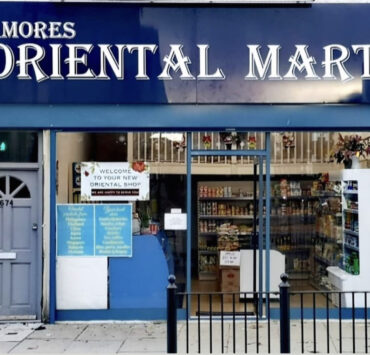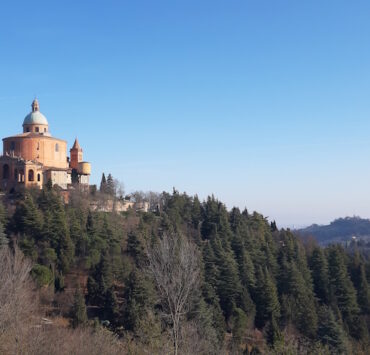Certified coffee lover Patricia Villasenor is bringing the taste of Philippine coffee varieties to Germany, including our unique Filipino kapeng barako.
Patricia Villasenor is a certificated coffee lover. When she moved to Germany for her post-graduate study, she spent most of her time in cafés, writing her thesis from the moment they open until closing time. While working as a marketing manager for Babble, a language-learning app, she would still regularly frequent co-working cafés to work and mingle with colleagues from the tech world.
I’ve always love coffee and when I moved to Germany, one of the things I loved about it is that it has a very strong coffee culture. I am the type who goes to a cafe to work. I don’t know why; the cafe culture is very conducive to working. I love that.
Patricia Villasenor, owner, Kape de Filipina
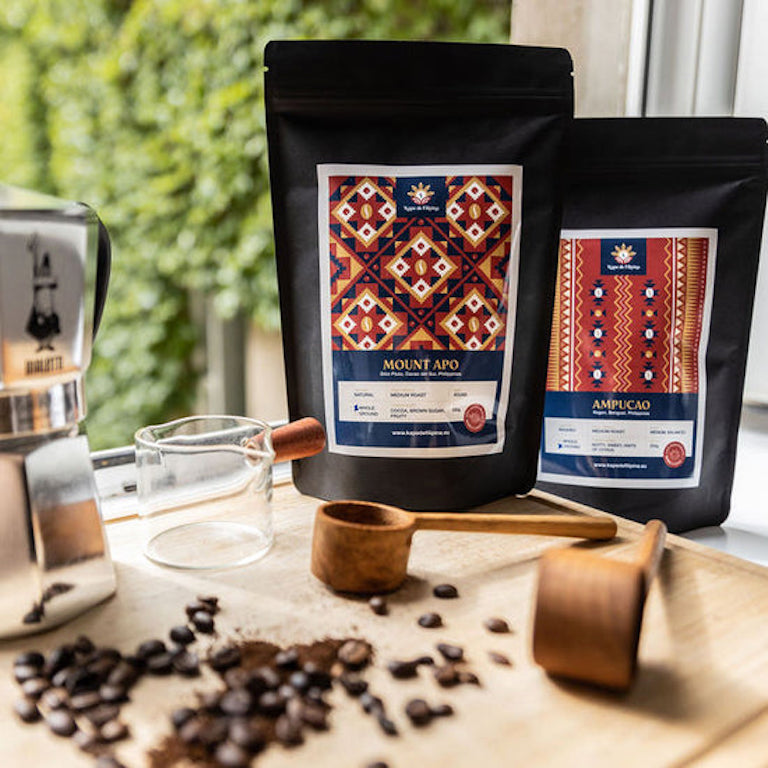
While there is a variety of coffee choices from different parts of the world, she noticed what is glaringly absent is coffee from the Philippines, considering that the Philippines is located along the Bean Belt, and is one of the few countries in the world able to produce the four coffee varieties, Arabica, Liberica, Robusta, and Excelsa. In 1880, the Philippines was the fourth major producers of coffee in the world, until coffee rust, a disease that destroyed crops in the early 1900s, almost wiped-out entire plantations. Today, the Philippines ranks 32nd among global coffee producers.
The idea of bringing Filipino coffee to Germany had since then began brewing in her head. In September 2021, undeterred by the Covid-19 pandemic, she took the leap and began importing and selling Philippine coffee through her web shop Kape de Filipina. She brought in two varieties, Arabica coffee beans from Mt. Apo, Ampucao and Mt. Matutum, and Liberica, or the famed Barako coffee which made put Lipa, Batangas on the coffee world map.
Among the samples that I bring in, Barako was not the winner in terms of taste. I don’t know any other origin of coffee which has the same smoky, jack-fruity, citrusy flavor. By its taste it is very unique. When you’re accustomed to sweetness, that’s always Arabica, the sweeter the better. Barako is different. But I knew that Barako would be the carrier because it is so uniquely Filipino. Barako is now my #1 bestseller.
Patricia Villasenor, owner, Kape de Filipina
Patricia added that because only 3% of the coffee yield originates from Liberica coffee origin, there is less awareness and thus less consumption of this variety.
But she is determined to change this, starting at least in Germany. She recalls talking to another visitor at the Frankfurt Coffee Festival, where she is hoping to be an exhibitor one day.
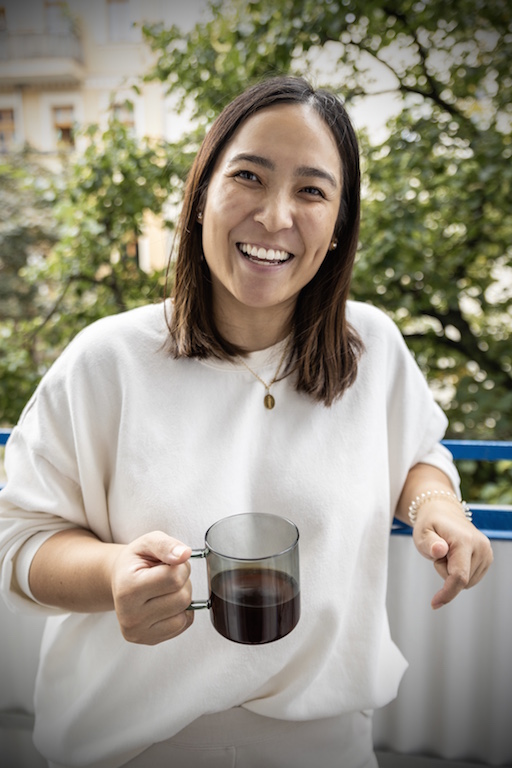
“I had a conversation with one person where I said, I carry coffee beans from the Philippines, and I wanted to learn more about the coffee culture in Germany. First thing he said was, “wait a minute you have coffee beans from the Philippines?” That is already is so unique because I have never heard of it. It validated a lot of the things I was hoping to start conversations in Germany. The interest is there is because they never heard of it, they never tasted it, and no one talks about it,” Patricia excitedly narrates.
Within 90 days since launching Kape de Filipina, Patricia was able to sell 500 packs of coffee, a small but significant step towards her goal of bringing the Philippine coffee back to the global coffee map. Patricia recognizes the role of Filipino expats in bringing awareness about Philippine coffee. Her clients consist mainly of Filipinos in Germany who not only buy for their own consumption but to give away as gifts to friends and family. Through Instagram, Facebook and word of mouth, a few German clients are also ordering from her, either out of curiosity or because of their Filipino connection.
In March 2017, President Rodrigo Duterte signed a signed the Philippine Coffee Industry Roadmap, which aimed to boost the country’s domestic coffee output between 2017-2022.
Coffee is the second most traded commodity in the world, and while capable, the Philippines is only producing 62,000 metric tons of green coffee a year, which is not even enough for local consumption which is estimated at 100,000 metric tons a year.
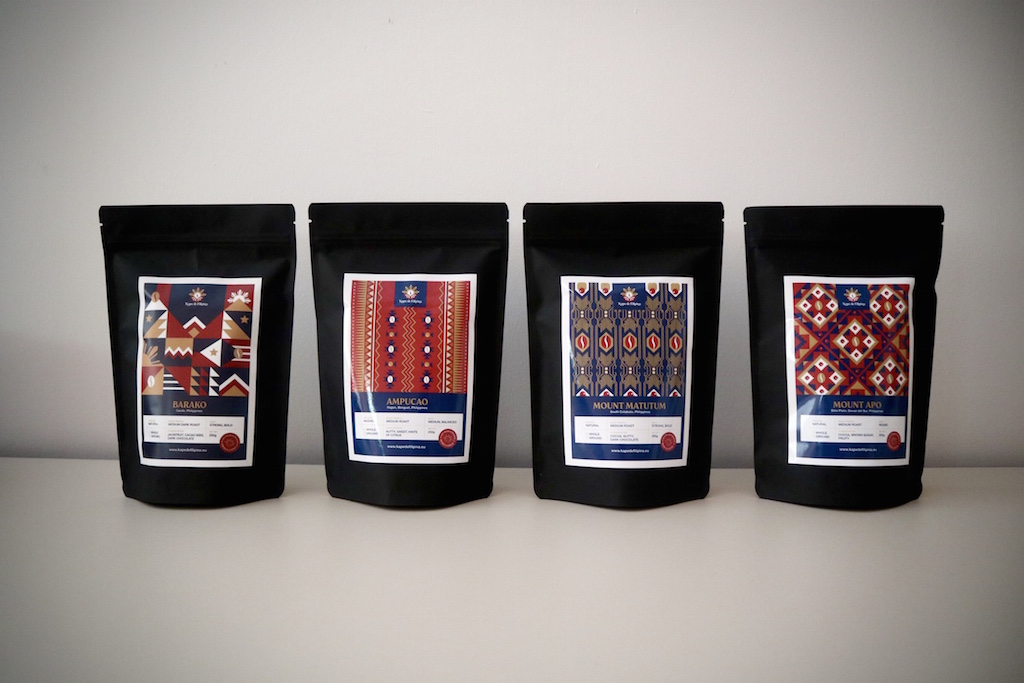
The Philippine Department of Trade and Industry and Department of Agriculture hopes to increase this to an average yield of 1 ton per hectare in 2022, by providing additional subsidy for farmers, additional facility for postharvest, access to credit and market outlets and education programme, mobilizing both government and private sectors to achieve their objectives.
Patricia knows the struggles of coffee farmers in the Philippines, from having too little income and meagre investment while being vulnerable to climate change and natural disasters. In 2022 she plans to be more involved in the supply chain of her business, visit plantations to get to know coffee farmers more, and become a member of the Philippine Coffee Alliance.
How do we bring Filipino coffee back in the global map?
“I think the first step to really bring awareness about the ability of the Philippines to produce its own coffee. It is quite surprising that there’s very little awareness of our coffee culture. Second is making more Filipino and non Filipino taste our coffee. One of my favourite things about the coffee industry globally is that, depending on where your coffee came from, the taste is really so different, you can taste it. And I love for the world to be able to taste Filipino coffee and find it, from world expo and cafes, that the Philippines is represented.”
One of my favourite things about the coffee industry globally is that, depending on where your coffee came from, the taste is really so different, you can taste it. And I love for the world to be able to taste Filipino coffee and find it, from world expo and cafes, that the Philippines is represented.
Patricia Villasenor, owner, Kape de Filipina
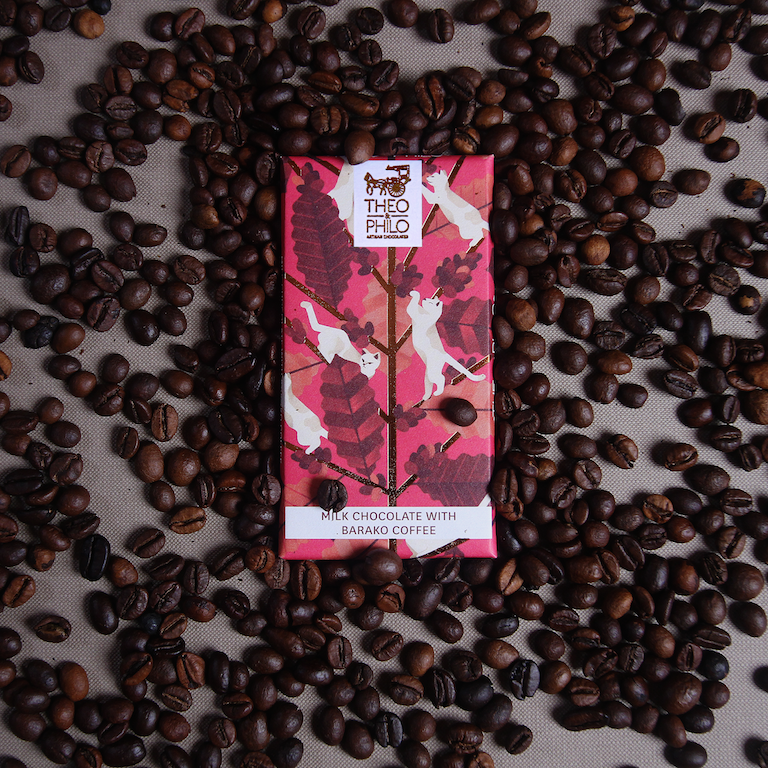
Recently Patricia also added coffee-flavoured chocolates in her assortment, made from award-winning Philippine cacao, the perfect accompaniment to strong, Filipino coffee.
One day, Patricia dreams of owning a café filled with Philippine produced coffee. But for now, Patricia enjoys the ultimate coffee moment, quiet mornings when she can make her own coffee at home, enjoy every sip and share it with Filipinos in Europe through Kape de Filipina.
Follow Kape de Filipina on Instagram (@kapedefilipina) or order via www.kapedefilipina.eu.
This article was first published in TFEM Spring Issue 2022.
What's Your Reaction?
Dheza Aguilar is the Managing Editor of The Filipino Expat Magazine. She was a former Netherlands correspondent for ABS-CBN, and freelance writer for other publications. She works for a supply company in Rotterdam and is eternally juggling passion and career.


